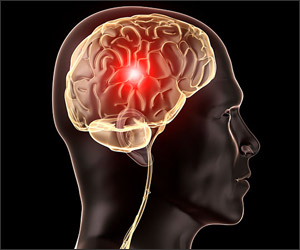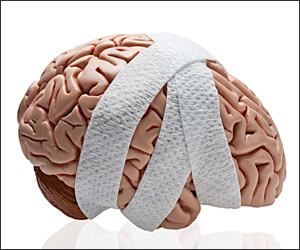
Dr. Amitabha Das
MBBS (Hons), MS (General Surgery, Gold medalist), MCh (Neurosurgery, AIIMS

MBBS (Hons), MS (General Surgery, Gold medalist), MCh (Neurosurgery, AIIMS
HEAD INJURY
What is a head injury?
A head injury is any sort of injury to your brain, skull, or scalp. This can range from a mild bump or bruise to a traumatic brain injury. Common head injuries include concussions, skull fractures, and scalp wounds. The consequences and treatments vary greatly, depending on what caused your head injury and how severe it is.
Head injuries may be either closed or open. A closed head injury is any injury that doesn’t break your skull. An open, or penetrating, head injury is one in which something breaks your skull and enters your brain.
It can be hard to assess how serious a head injury is just by looking. Some minor head injuries bleed a lot, while some major injuries don’t bleed at all. It’s important to treat all head injuries seriously and get them assessed by a doctor.
 2
2
What causes a head injury?
In general, head injuries can be divided into two categories based on what causes them. They can either be head injuries due to blows to the head or head injuries due to shaking.
Head injuries caused by shaking are most common in infants and small children, but they can occur any time you experience violent shaking.
Head injuries caused by a blow to the head are usually associated with:
• motor vehicle accidents
• falls
• physical assaults
• sports-related accidents
In most cases, your skull will protect your brain from serious harm. However, injuries severe enough to cause head injury can also be associated with injuries to the spine.
 3
3
What are the major types of head injuries?
A) Hematoma
A hematoma is a collection, or clotting, of blood outside the blood vessels. It can be very serious if a hematoma occurs in the brain. The clotting can cause pressure to build inside your skull, which can cause you to lose consciousness or result in permanent brain damage.
B) Hemorrhage
A hemorrhage is uncontrolled bleeding. There can be bleeding in the space around your brain, which is a subarachnoid hemorrhage, or bleeding within your brain tissue, which is an intracerebral hemorrhage.
Subarachnoid bleeds often cause headaches and vomiting. The severity of intracerebral hemorrhages depends on how much bleeding there is, but over time any amount of blood can cause pressure to build.
C) Concussion
A concussion is a brain injury that occurs when your brain bounces against the hard walls of your skull. Generally speaking, the loss of function associated with concussions is temporary. However, repeated concussions can eventually lead to permanent damage.

D) Edema
Any brain injury can lead to edema, or swelling. Many injuries cause swelling of the surrounding tissues, but it’s more serious when it occurs in your brain. Your skull can’t stretch to accommodate the swelling, which leads to a buildup of pressure in your brain. This can cause your brain to press against your skull.
E) Skull fracture
Unlike most bones in your body, your skull doesn’t have bone marrow. This makes the skull very strong and difficult to break. A broken skull is unable to absorb the impact of a blow, making it more likely that there will also be damage to your brain. Learn more about skull fractures.
F) Diffuse axonal injury
A diffuse axonal injury, or sheer injury, is an injury to the brain that doesn’t cause bleeding but does damage your brain cells. The damage to the brain cells results in them not being able to function and can also result in swelling, causing more damage. Though it isn’t as outwardly visible as other forms of brain injury, diffuse axonal injury is one of the most dangerous types of head injuries and can lead to permanent brain damage and even death.
 4
4
What are the symptoms of a head injury?
Your head has more blood vessels than any other part of your body, so bleeding on the surface of your brain or within your brain is a serious concern in head injuries. However, not all head injuries cause bleeding.
It’s important to be aware of other symptoms to watch out for. Many symptoms of serious brain injury won’t appear right away. You should always continue to monitor your symptoms for several days after you injure your head.
 Common symptoms of a minor head injury include:
Common symptoms of a minor head injury include:
• a headache
• lightheadedness
• a spinning sensation
• mild confusion
• nausea
• temporary ringing in the ears
The symptoms of a severe head injury include many of the symptoms of minor head injuries. They can also include:
• a loss of consciousness
• seizures
• vomiting
• balance or coordination problems
• serious disorientation
• an inability to focus the eyes
• abnormal eye movements
• a loss of muscle control
• a persistent or worsening headache
• memory loss
• changes in mood
• leaking of clear fluid from the ear or the nose
